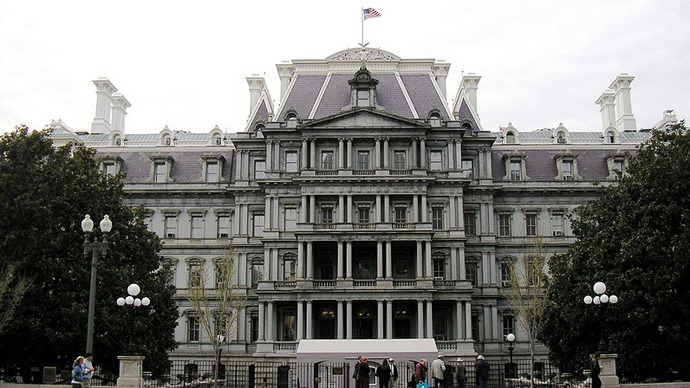Sequestration questioned ahead of critical deadline

The recent proposal of 85 billion in across-the-board spending cuts for the US government has sparked fierce political debate, especially after one of the previous reports allocated budget cuts to a federal department that has ceased to exist.
The Office of Management and Budget, in accordance with The Sequestration Transparency Act of 2012, submitted a detailed report to Congress in September 2012 claiming that under the sequestration measures, the National Drug Intelligence Center’s $20 million budget would shrink by $2 million. The problem is that the National Drug Intelligence Center ceased to exist in mid-June the same year.

Meanwhile, on Sunday the White house has released a new
sequestration report outlining the budget cuts in all fifty states
and the District of Columbia. The $85 billion in spending cuts are
to come into force on Friday unless Congress agrees on a deficit
reduction deal that includes added tax revenue.
Among the highlights of the sequester are the US defense apparatus, teacher jobs, healthcare and the country’s transportation system.
The recently released document is designed to pressure the Republicans to adopt President Obama's deficit reduction plan. Under that proposal, $1.8 trillion would be achieved in deficit reduction, breaking down to $1.1 trillion in spending cuts and $680 billion in new revenues primarily from taxing the wealthiest Americans.
On Monday Obama claimed that the approaching cuts are already
influencing the economy, while observers noted that the cuts will
affect the nation’s security as well.
“The uncertainty is already having an effect,” Obama said. “Companies are preparing layoff notices. Families are preparing to cut back on expenses. The longer these cuts are in place, the bigger the impact will become.”
Meanwhile, Homeland Security Secretary Janet Napolitano has warned that budget cuts would affect the national security, with many jobs in her agency cut as well.
“I don't think we can maintain the same level of security at all places around the country with sequester as without sequester,” said Napolitano, adding that the impact would be “like a rolling ball. It will keep growing.”
Defense Secretary Leon Panetta also warned that budget trims would damage the US military’s combat readiness.
The sequester was designed to take effect only if a
congressional committee failed to come up with at least $1 trillion
in savings from benefit programs. The sequestration was to come
into force on January 1, 2013 and was considered part of the fiscal
cliff, but the American Taxpayer Relief Act of 2012 delayed it
until March 1.













